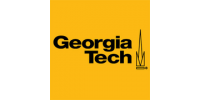- From www.coursera.org
Survey of Music Technology

- Self-paced
- Free Access
- 6 Sequences
- Introductive Level
Course details
Syllabus
- Week 1 - Module 1: Introduction and the Basics of Sound
The first module provides an introduction to the course and lessons in acoustics, psychoacoustics, timbre, digital representation of sound, and spectral representation of sound. - Week 2 - Module 2: Digital Audio Workstations
This module will look at DAW history and key features, music representation, recording and editing audio in a DAW, effects and automations, and aesthetic context. - Week 3 - Module 3: Working With MIDI
In this module we will take a look at MIDI specification (history, structure, limitations), real and virtual MIDI devices, and MIDI sequencing in the DAW. The module concludes with the first of two peer reviewed assignments, in which students create a multi-tr... - Week 4 - Module 4: Algorithmic Composition Basic Techniques
In this module students will learn the basics of Python programming and the EarSketch API and the history and practice of algorithmic composition. - Week 5 - Module 5: Algorithmic Composition Advanced
This module looks at more advanced topics in algorithmic programming for music including stochastic composition, chance music, process music, and modeling. - Week 6 - Module 6: Future Directions
This module will help students by describing the core research areas in computer music and their future directions. We will explore music information retrieval, live coding, machine musicianship, new musical interfaces, mobile music, and networked music.
Prerequisite
Instructors
- Dr. Jason A. Freeman, Professor
School of Music
Editor
The Georgia Institute of Technology, also known as Georgia Tech or GT, is a co-educational public research university located in Atlanta, Georgia, USA. It is part of the wider University System of Georgia network. Georgia Tech has offices in Savannah (Georgia, USA), Metz (France), Athlone (Ireland), Shanghai (China), and Singapore.
Georgia Tech's reputation is built on its engineering and computer science programmes, which are among the best in the world5,6. The range of courses on offer is complemented by programmes in the sciences, architecture, humanities and management.

Platform
Coursera is a digital company offering massive open online course founded by computer teachers Andrew Ng and Daphne Koller Stanford University, located in Mountain View, California.
Coursera works with top universities and organizations to make some of their courses available online, and offers courses in many subjects, including: physics, engineering, humanities, medicine, biology, social sciences, mathematics, business, computer science, digital marketing, data science, and other subjects.


